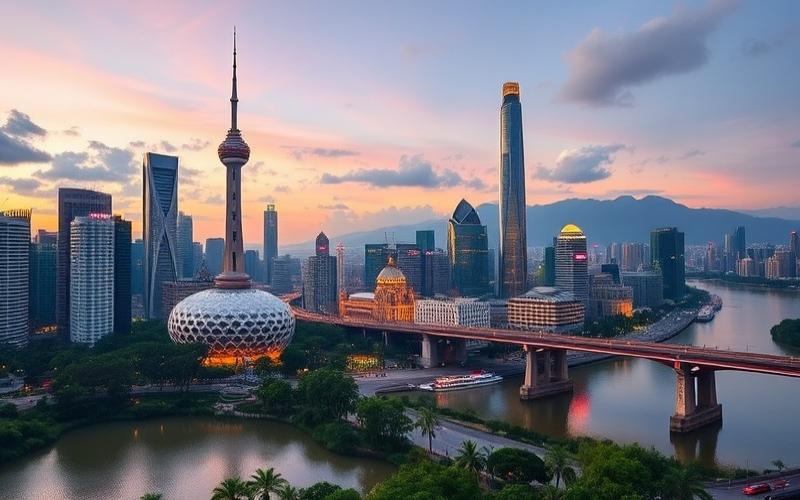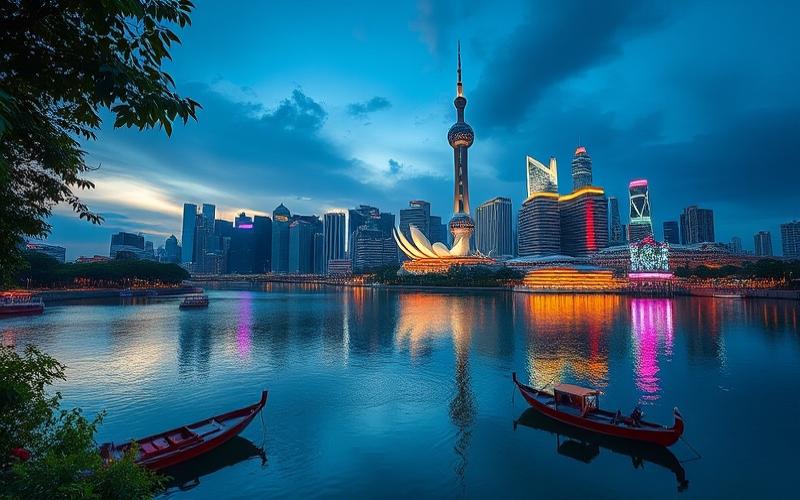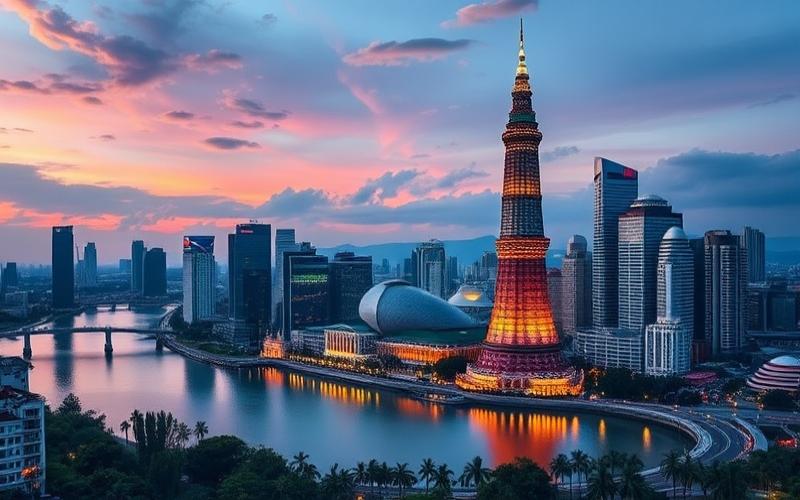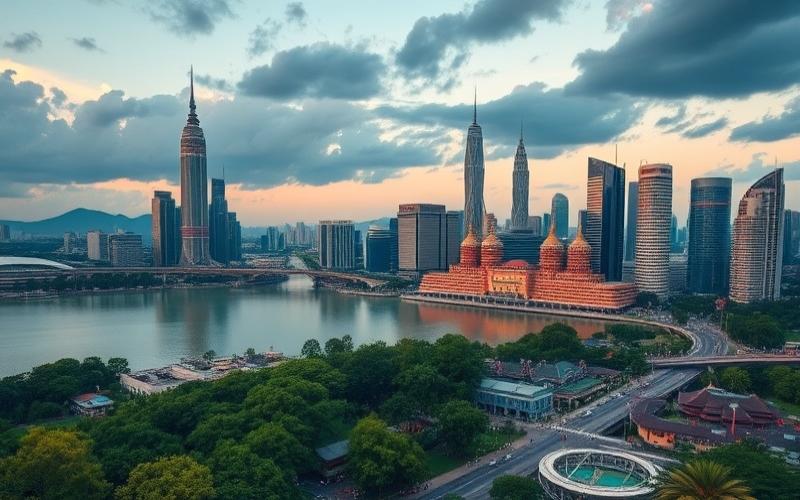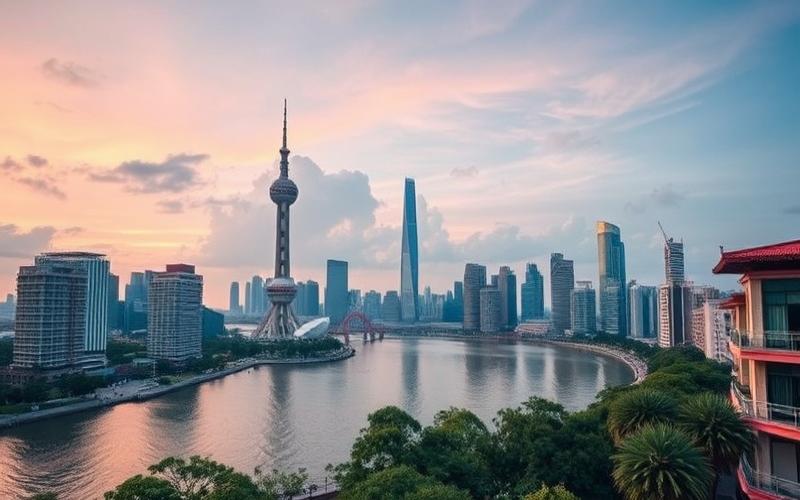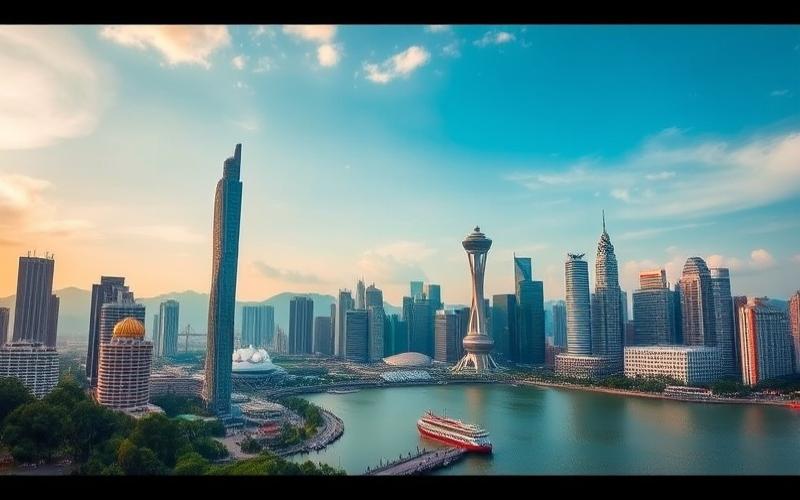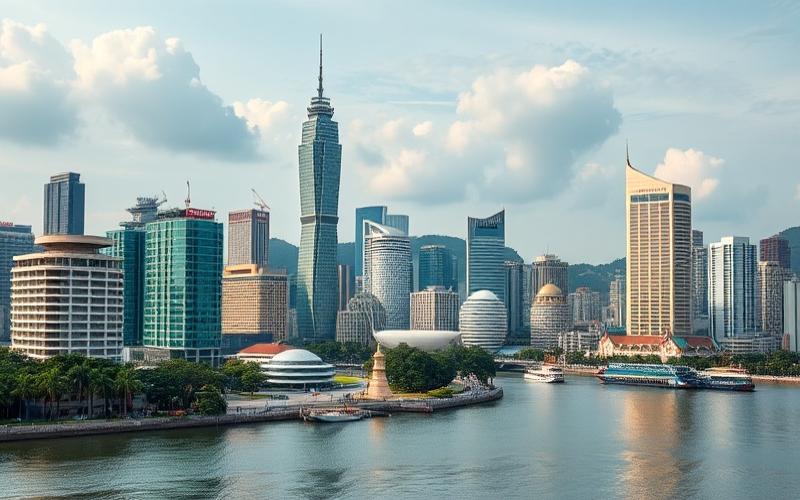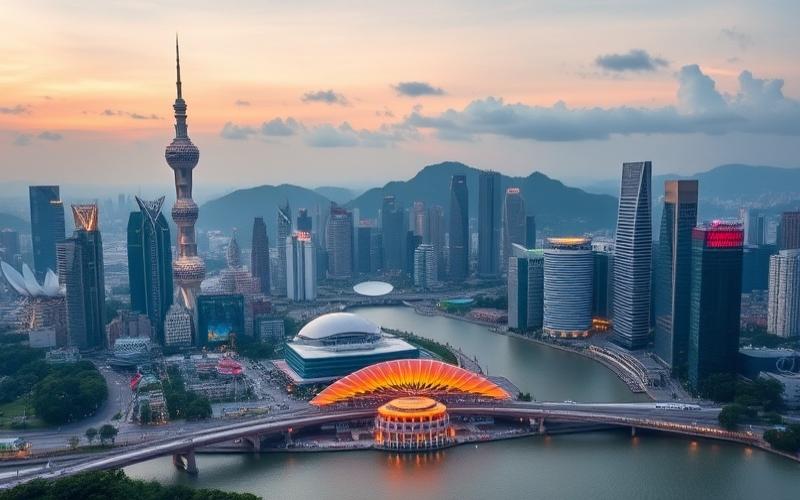
 Published on and written by Cyril Jarnias
Published on and written by Cyril Jarnias
Singapore, a prosperous city-state in Southeast Asia, attracts numerous international real estate investors due to its political stability, dynamic economy, and high quality of life. However, the Singaporean property market has specific characteristics that can confuse foreign buyers. To help you make a successful investment in the Lion City, here is an overview of the most common mistakes to avoid when purchasing property in Singapore.
Not mastering local regulations: a costly misstep
One of the most common mistakes for foreign investors is not sufficiently familiarizing themselves with the legal and regulatory framework governing property purchases in Singapore. The Singaporean government has implemented specific restrictions for foreign buyers, particularly regarding accessible property types and acquisition procedures.
Purchase rules for foreigners
In Singapore, foreigners cannot freely purchase all types of real estate. Restrictions mainly apply to the purchase of private residential properties:
- Apartments in buildings with fewer than 6 floors are generally prohibited for foreign buyers
- Purchase of landed properties requires prior government approval
- Foreigners can purchase apartments in buildings with more than 6 floors without specific restrictions
Not knowing these rules can lead to significant disappointments, or even the impossibility of finalizing a transaction.
Additional Buyer’s Stamp Duty (ABSD)
Another Singaporean specificity is the Additional Buyer’s Stamp Duty (ABSD), an additional tax applied when purchasing property. For foreigners, this tax currently amounts to 30% of the property value, in addition to other fees and taxes. Not accounting for ABSD in your budget can seriously compromise an investment’s profitability.
The leasehold system
Most properties in Singapore are sold as 99-year leaseholds. Buyers must be aware that the property value decreases as the lease approaches its term. Ignoring this particularity can lead to overestimating the investment’s long-term value.
Good to know:
Before any property purchase in Singapore, it is crucial to consult a local lawyer specialized in real estate law to ensure compliance with all current regulations.
A common mistake among foreign investors is not accounting for all costs associated with purchasing and owning property in Singapore. Beyond the purchase price and ABSD, several additional fees must be budgeted.
Transaction fees
Transaction fees can represent a significant portion of the total acquisition cost. They notably include:
- Real estate agency fees (typically 1% to 2% of the sale price)
- Notary and registration fees
- Property valuation fees
- Legal fees for drafting and verifying contracts
Recurring taxes
Once you become an owner, several taxes apply on a recurring basis:
- Property tax, with rates varying according to property use (primary residence, rental investment, etc.)
- Maintenance fees for condominium apartments
Renovation and maintenance costs
Properties in Singapore, particularly older apartments, may require significant renovation work. The high cost of labor and materials in Singapore can quickly increase the bill.
Not anticipating these various costs can seriously impact investment profitability and jeopardize the financial balance of the operation.
Good to know:
It is recommended to set aside a safety margin of at least 10% to 15% of the purchase price to cover all additional fees and unexpected expenses.
Neglecting location: a crucial choice for appreciation
The adage “location, location, location” takes on its full meaning in the Singaporean property market. Choosing a poorly located property can seriously compromise investment profitability and potential capital gains.
The importance of public transportation
In Singapore, proximity to MRT stations (Mass Rapid Transit, the local subway) is a determining factor for property value. Properties located within a 10-minute walk of an MRT station typically command a significant premium, both for rental and resale.
Future development areas
The Singaporean government plans urban development for the long term. Some neighborhoods, currently less popular, are set to develop significantly in the coming years. Ignoring these development plans can mean missing out on interesting opportunities.
Neighborhood quality of life
Beyond accessibility, neighborhood quality of life plays an important role in a property’s attractiveness. The presence of reputable schools, shopping centers, parks, and other amenities can significantly influence rental value and future resale potential.
Not taking the time to study the property’s location and its evolution potential in detail can lead to underperforming investments, despite the property’s intrinsic quality.
Good to know:
Singapore’s urban development plans are public and accessible online. It is wise to consult them before any investment to anticipate the neighborhood’s future evolution.
Overestimating rental potential: beware of overly optimistic projections
Many foreign investors purchase properties in Singapore with rental objectives in mind. However, overestimating rental potential is a common mistake that can compromise investment profitability.
Rental market reality
The Singaporean rental market is cyclical and can experience significant fluctuations. Rents tend to follow the evolution of the local and regional economy. An economic slowdown period can lead to significant rent decreases and increased vacancy rates.
Competition from new constructions
Singapore maintains a sustained construction pace. New real estate projects are regularly delivered, creating increased competition in the rental market. Older properties can quickly lose attractiveness compared to new properties offering modern amenities.
Short-term rental restrictions
Unlike other tourist destinations, Singapore imposes strict restrictions on short-term rentals (Airbnb type). The minimum rental duration for private residential properties is three consecutive months. This regulation limits profitability possibilities through tourist rentals.
To avoid disappointments, it is crucial to conduct thorough market research and base rental projections on realistic and updated data.
Good to know:
Local real estate agencies regularly publish reports on the state of Singapore’s rental market. These documents constitute a valuable source of information for assessing a property’s rental potential.
Ignoring cultural specifics: a barrier to negotiation
Foreign investors sometimes underestimate the importance of cultural aspects in Singaporean real estate transactions. This lack of knowledge can lead to misunderstandings and compromise negotiation success.
The importance of “face”
In Singaporean culture, strongly influenced by Chinese traditions, the concept of “face” (or mianzi) is paramount. It involves preserving one’s dignity and that of one’s interlocutor. An overly direct or aggressive approach in negotiation can be perceived as disrespectful and block the transaction.
Superstition in real estate
Certain superstitious aspects can influence real estate transactions in Singapore. For example, numbers 4 and 14 are considered unlucky in Chinese culture because their pronunciation is close to the word “death.” Conversely, the number 8 is considered lucky. These beliefs can affect a property’s perceived value.
The role of intermediaries
In Singaporean business culture, intermediaries often play a crucial role in facilitating negotiations and establishing trust between parties. Neglecting the importance of these intermediaries can unnecessarily complicate the purchase process.
Taking the time to understand these cultural subtleties and adapting to local practices can greatly facilitate negotiations and help obtain better purchase conditions.
Good to know:
It may be wise to engage an experienced local real estate agent to navigate these cultural subtleties and optimize your chances of negotiation success.
Neglecting legal aspects: a major long-term risk
A potentially very costly mistake is neglecting the legal aspects of real estate transactions in Singapore. The Singaporean legal system, although renowned for its efficiency, has particularities that may escape foreign investors.
Property title verification
In Singapore, most properties are registered in the Torrens system, which guarantees the validity of the property title. However, it is crucial to carefully verify all property-related documents to ensure there are no ongoing disputes or hidden restrictions.
Sales contracts
Real estate sales contracts in Singapore are typically very detailed and may contain clauses specific to the local context. Not having the contract reviewed by a specialized lawyer can expose the buyer to significant legal risks.
Usage restrictions
Certain properties in Singapore are subject to specific usage restrictions. For example, HDB apartments (public housing) can only be purchased by Singaporean citizens and are subject to strict rules regarding rental and resale.
Tax implications
Tax implications of property purchases in Singapore can be complex, particularly for foreign investors. Not properly anticipating these aspects can lead to unpleasant surprises when selling the property or receiving rental income.
It is strongly recommended to surround yourself with qualified professionals (lawyer, accountant) to ensure all legal and tax aspects of the transaction are properly considered.
Good to know:
The Singaporean legal system is renowned for its rigor and efficiency. However, procedures can be complex for the uninitiated. Don’t hesitate to invest in quality legal support to avoid long-term troubles.
Conclusion: the key to successful investment in Singapore
Investing in Singapore real estate can prove extremely profitable for those who know how to navigate the subtleties of the local market. However, the mistakes discussed in this article can quickly turn a promising opportunity into a financial nightmare.
The key to successful investment in Singapore lies in meticulous preparation:
- Familiarize yourself with the local regulatory framework
- Precisely budget all costs associated with purchasing and owning the property
- Study the location and its evolution potential in depth
- Make realistic rental projections
- Adapt to local cultural specifics
- Surround yourself with qualified professionals for legal and tax aspects
By avoiding these common mistakes and adopting a methodical approach, foreign investors can fully benefit from opportunities offered by the Singaporean property market, one of Asia’s most dynamic and stable.
Good to know:
The Singaporean property market is renowned for its transparency and stability. However, it evolves rapidly. It is crucial to stay informed about the latest trends and regulations to optimize your investment.
Disclaimer: The information provided on this website is for informational purposes only and does not constitute financial, legal, or professional advice. We encourage you to consult qualified experts before making any investment, real estate, or expatriation decisions. Although we strive to maintain up-to-date and accurate information, we do not guarantee the completeness, accuracy, or timeliness of the proposed content. As investment and expatriation involve risks, we disclaim any liability for potential losses or damages arising from the use of this site. Your use of this site confirms your acceptance of these terms and your understanding of the associated risks.


